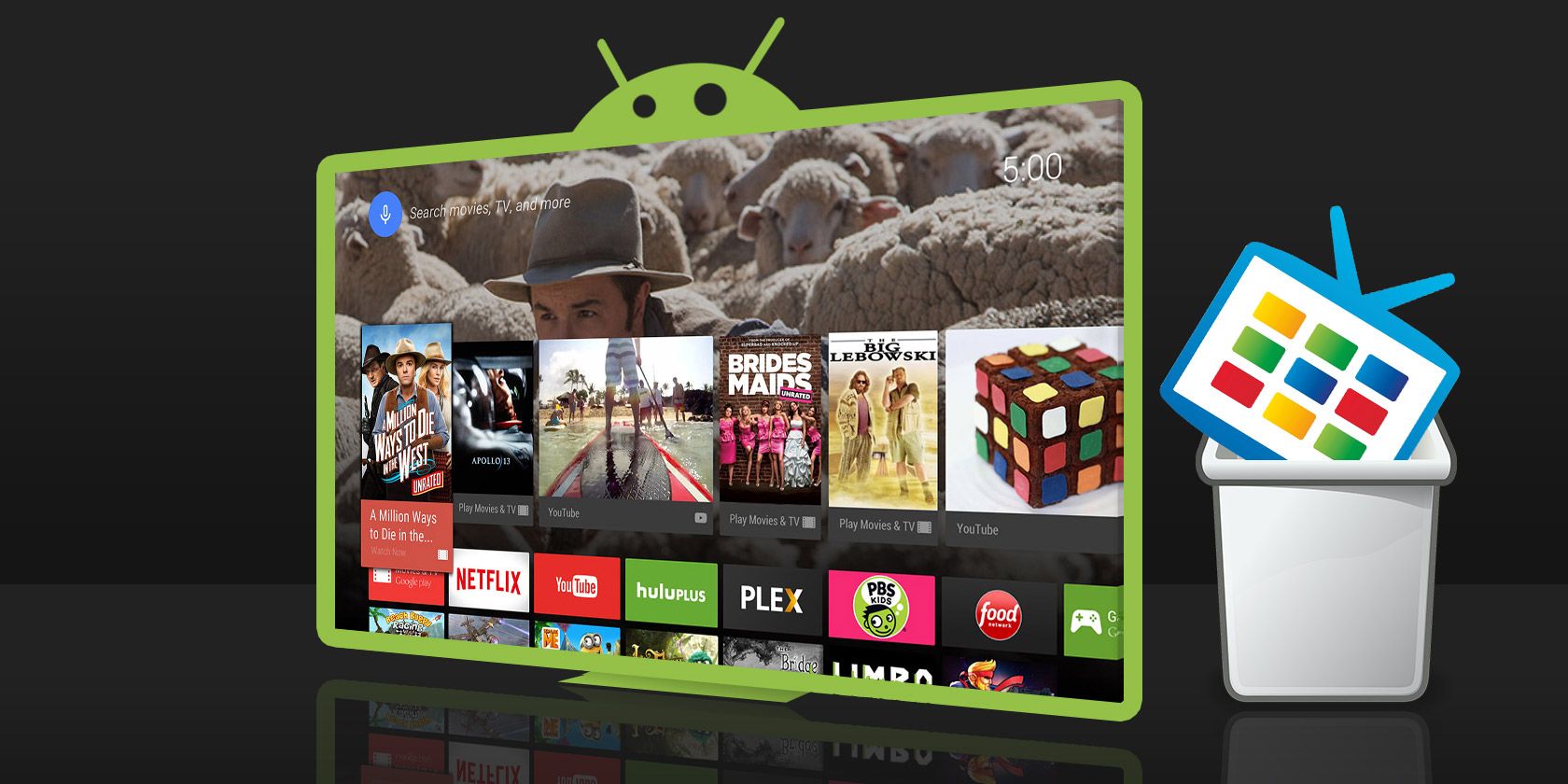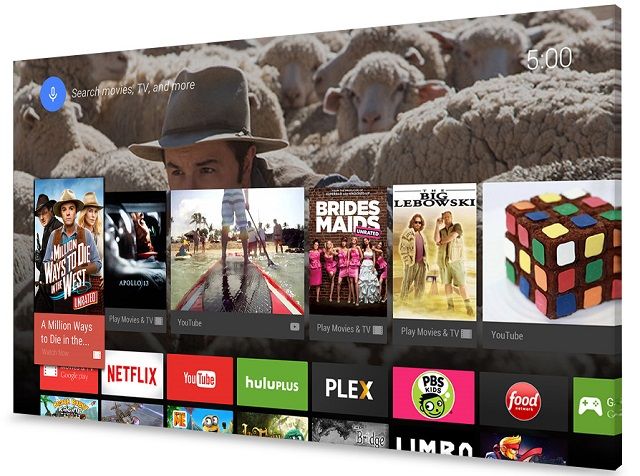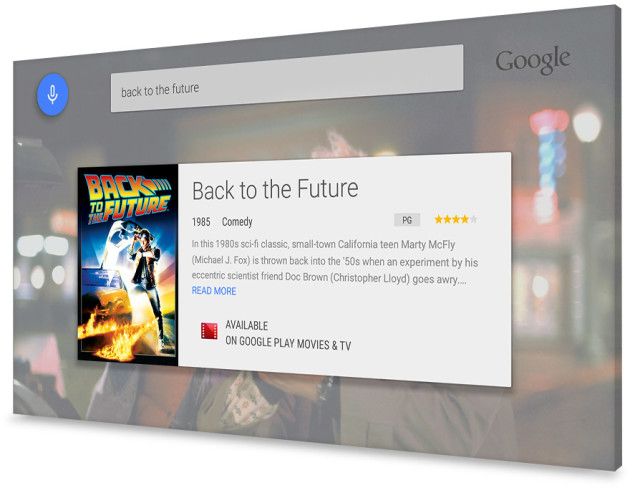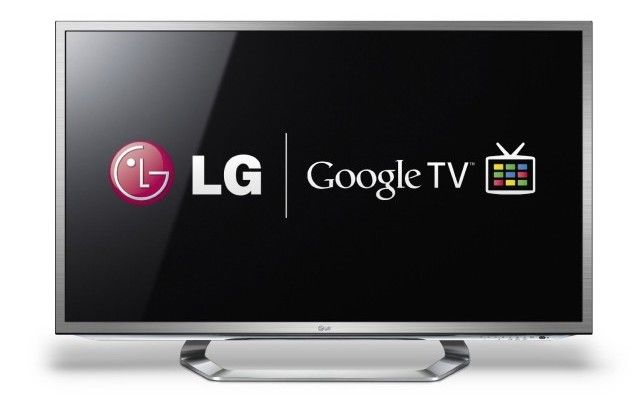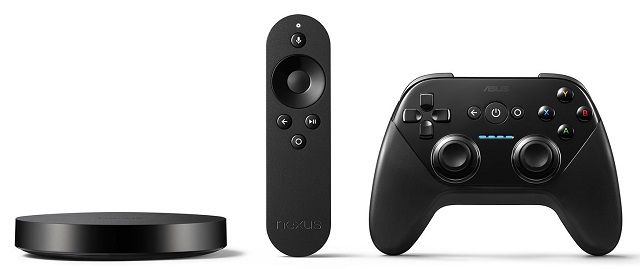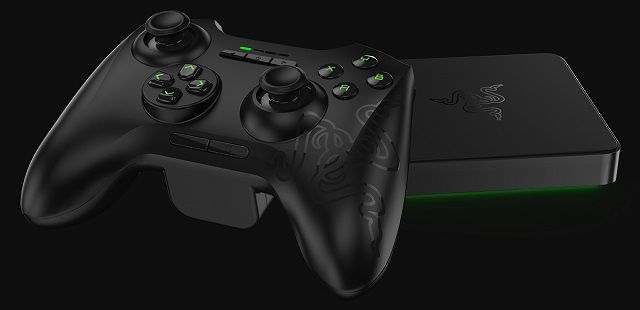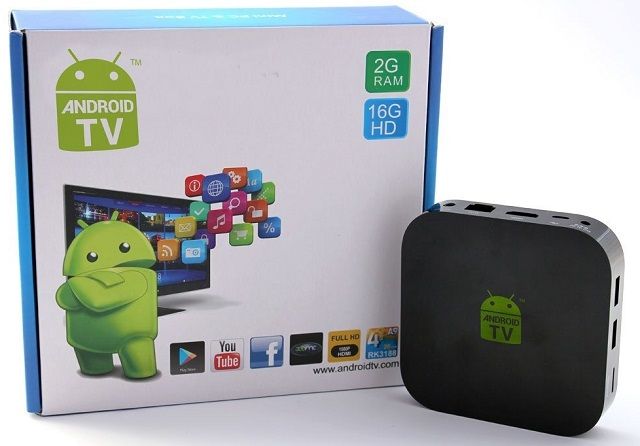Long live the king, sneered Android TV as it threw Google TV off the cliff and into a herd of stampeding wildebeests.
Well, not exactly, but Android TV is replacing the now-five-year-old Google TV. And it's not just an update -- it's a complete remake. Only a tiny fraction of Google TV devices will be updated to Android TV.
For all intents and purposes, Android TV is a new beast. Google is, once again, coming for your living room. So what exactly is this new technology, and how can you get your hands on it?
What Is Android TV?
It's an operating system (OS). It's a version of Android 5.0 Lollipop made just for TVs. But what that means for the average consumer is a much more cohesive relationship between all their smart devices.
This OS will come built-in to some TVs in 2015, and also in the form of set-top boxes to magically transform your normal TV into a smart TV. The set-top box arena is already pretty crowded, with options like the Roku (our review), Apple TV (our review), and Amazon Fire TV (our review) all offering compelling products. Some TVs by Hisense and TCL already ship with Roku TV built-in, just like what Google is trying to get manufacturers to do with Android TV.
As for a set-top box already running Android TV, look no further than the Nexus Player. It has received mostly lukewarm reviews since its release in November 2014, mostly due to a lack of apps and lack of TV pass-through -- but as the OS matures and more hardware manufacturers get on board, those problems will surely fade away.
Android TV, in fact, supports the Google Play Store and the wealth of apps there. The biggest problem is that developers have to design a 10-foot user interface version of their apps if they want them to be usable and enjoyable on the big screen.
The good news is that since Android TV is linked so closely to standard Android 5.0 Lollipop that developers can use the Android SDK to easily develop both for the smartphone/tablet and TV operating systems.
Assuming that Android TV gets the kinks worked out of it in the coming months, users can expect a few major features.
- Voice control. Using a microphone built in to your remote, gaming controller, or smartphone, you can ask Google anything you want and the intelligence behind Google Now will respond well.
- Gaming. Google is really working on improving the gaming experience here, so expect a larger push of Android TV-compatible games and controllers.
- Screen-mirroring and content sharing. Have a photo or video on your phone that you want on the TV? No big deal.
- Consistent interface. Google TV was hounded for its inconsistent, clunky interface, but Android TV is built on Material Design principles and should fit right in with your phone's OS and all those Material Design-inspired apps.
Want to see some of that in action? Sony has produced some of the cheesiest commercials on this planet, but they also happen to demonstrate Android TV's features pretty well.
Above, you can see the most awkward family ever using the Voice Search and Google Cast features.
In this video, Sony shows off the gaming aspect of Android TV with what looks to be a group of teenagers forced to sit around and pretend to like each other. Hopefully your gaming experience on Android TV won't be quite like this -- but you get the idea.
Basically, if all turns out as Google says, Android TV should allow your TV to become an extension of your phone or tablet that is integrated into all the same Google services you're already using.
It looks pretty awesome, but as we said before, it is entering a crowded playing field.
The Smart TV Battleground
Think of Android TV as the OS for TVs in the same way that Android is the OS for phones.
However, in the smartphone realm, tons of hardware manufacturers have adopted Android as their OS without a problem, but the TV market is looking to be much more fragmented than that.
Samsung, a leader in smartphones and TVs, won't be using Android TV in their newest Smart TVs. Instead, they use a proprietary software developed by Samsung, and they're calling their products simply Samsung Smart TVs. They've actually been in production for a few years now, and they have a few apps available for them like YouTube, Netflix, Pandora, Amazon Instant Video, and Hulu Plus.
Some models even have a camera for Skype video calling. The OS itself is pretty crowded. There are separate screens you can rotate to access, all trying to get you to buy and use Samsung products, which often feels like bloatware -- something anyone with a Samsung phone can attest to.
LG, another big name, is using their own webOS software to power their TVs. They're eloquently calling them Smart TV with webOS. Rolls right off the tongue, doesn't it? This OS was sold to LG by HP (after they acquired Palm, who originally developed it).
Maybe you remember HP's failed TouchPad, which ran webOS. This OS look simpler than Samsung's crowded OS, but without a large app store or the power of Google Now behind it, it's difficult to say how long it can stick around. Though its mascot, BeanBird, is pretty cute, and its design philosophy is simpler and looks more enjoyable than most of its competitors.
Vizio also has their own OS, which they've managed to name VIZIO Internet Apps Plus, which they sometimes shorten to VIA Plus. (Seriously, who is naming these companies' products?)
It has a basic-looking interface, but most importantly, it has apps from Netflix, Amazon Instant Video, Spotify, Pandora, Hulu Plus, and more.
Panasonic has what they're calling Smart Viera, Philips is using Net TV, and Toshiba is using Toshiba SmartTV. There really is just a ridiculous amount of TV operating systems out there right now.
Fortunately, Sony, Sharp, and TPVision (a subsidiary of Philips) have all said they're making Android TV-powered televisions. Sony's line of BRAVIA TVs, as well as the products from Sharp and TPVision, should be hitting the market sometime this spring or summer at the latest.
At that point, which OSes will win out the Smart TV battle is anyone's guess.
Goodbye, Google TV
Introduced all the way back in Fall 2010, Google TV is now dead and gone as of January 2015.
It had a solid four years, but few will be sad to see it go. It was mostly received as a half-baked OS that wasn't given enough attention by Google. That should be over now as Android TV is being treated as a major product intrinsically connected to other Android products.
A small subset of Google TV devices will get an upgrade to Android TV, but most will not (though Google didn't say which products would get the update).
If you have a TV or set-top box running Google TV, it will continue to function as normal, just don't expect any major updates or changes to the platform.
Google TV devices were actually manufactured by a variety of different companies including LG, Sony, Logitech, Vizio, ASUS, HiSense, and Netgear. It took the form of TVs as well as set-top boxes, but ultimately it didn't take off in the way Google had planned.
So, Google TV is gone, but I think we can all agree that Android TV is a worthy replacement.
Where Can I Get Android TV?
You could buy the already available Nexus Player direct from Google for $99, though it might not be the bastion of Android TV's abilities that many would like. With limited internal storage, no TV pass-through, and a general lack of ports on the device, it's certainly not for everybody.
Interested in gaming? Then you might want to try the Razer Forge TV, which was announced at CES 2015 and should be hitting the market this quarter. This set-top box costs $99 alone or $149 with a gaming controller.
It has better specs than the Nexus Player, an ethernet port, and it can stream PC games from your computer. It's a gaming powerhouse meant to show off everything that Android TV can do in that department -- and for that, it's pretty cheap.
Sony's line of BRAVIA TVs running Android TV should be arriving sometime this Spring, though you can sign up to be notified when one of their new 2015 TVs becomes available [Broken URL Removed]. Keep in mind, these likely won't come cheap as they are high-end, top-of-the-line models.
Also keep an eye out for TVs from Sharp and TPVision (though it's possible TPVision could release TVs under the Philips brand name). They should be coming by the summer, but you can check back every once and a while at the official Android TV website: Android.com/TV.
The AndroidTV.com Controversy Explained
You might notice that Google's official website for Android TV is Android.com/TV and not AndroidTV.com; there's a reason for that. Back when Google was looking at the possibility of creating Android TV, they tried to get that domain name, only to find that it was already taken by a company called Exo Level. The folks of at Android Police did some great investigating, and what they found is interesting.
Google actually had an ICANN hearing back in March to contest the domain, but their case was denied. It's easy to see how someone could be misled, though, since the site markets an "AndroidTV" that is actually just a set-top box from Exo Level running an older version of Android. At the time of this writing, however, the product doesn't seem to be available on the website anymore.
Android set-top boxes have been around for a while; in fact, we've reviewed some like the ProBox2 EX. These things hit the market from lots of unknown third-parties and had quality control issues across the board, but some worked out well and people loved them. They even made them in stick form called "Android TV Sticks" to compete against the Chromecast -- and we examined the differences between those devices while also reviewing some like the BiggiFi Android TV Stick.
The problem with these Android set-top boxes and TV sticks, though, is that they're not designed for TVs. You're running a phone software on a TV, and that's just awkward no matter how you slice it. It's treated as a completely different Android device, meaning it's not even easy to share your screen or content from one to the other. The official Android TV platform solves all that by being built specifically for TV usage.
So don't fall for the fakers. Visit Android.com/TV to learn more about Android TV, and avoid the sketchy AndroidTV.com.
Are You A Fan Of Android TV?
For Google, a lot is riding on the success of this new platform. What do you think of it?
Will you be picking up an Android TV set-top box or TV when they become available? Are you holding out for something else? Let us know in the comments.

